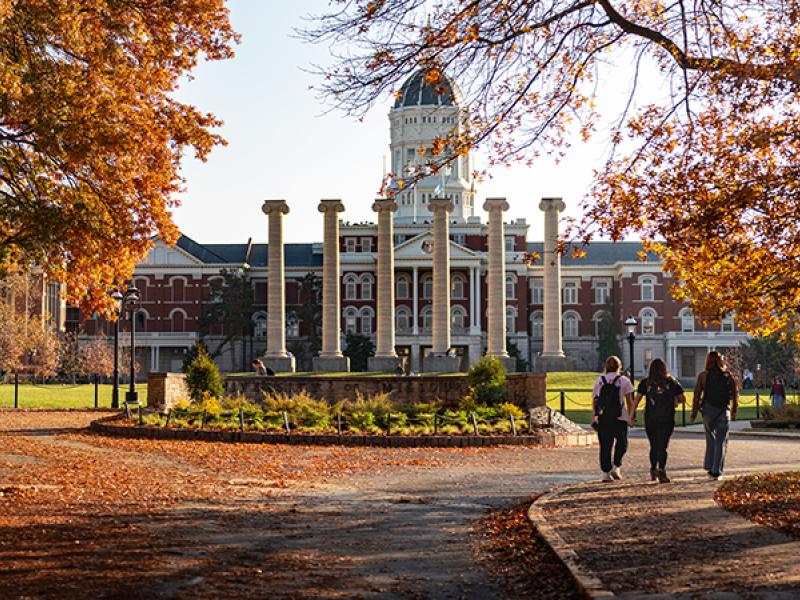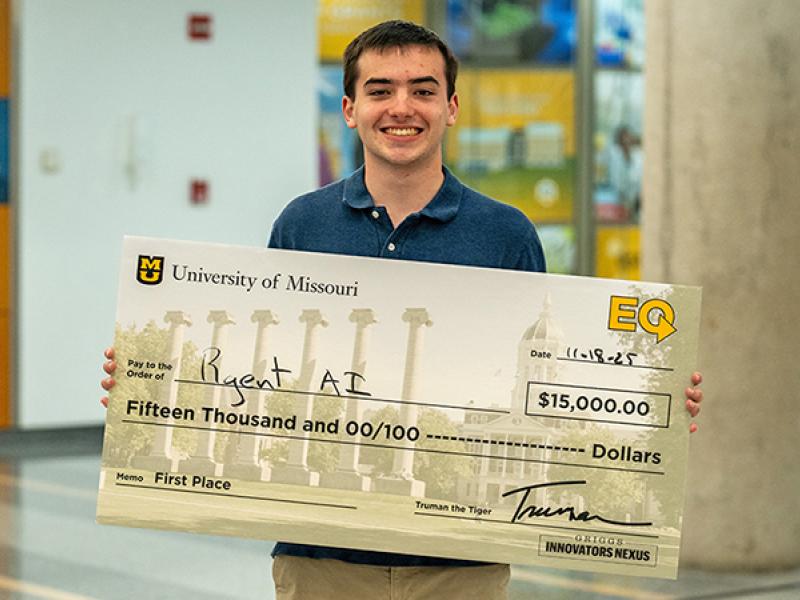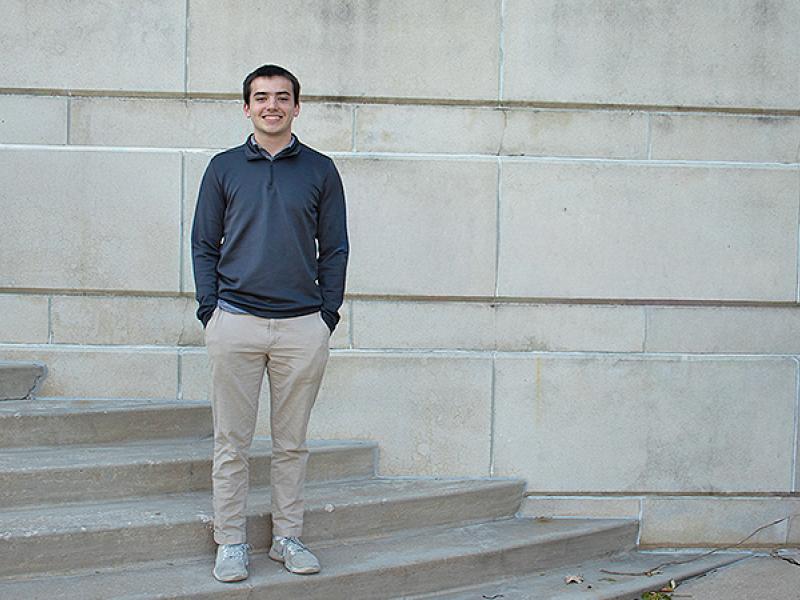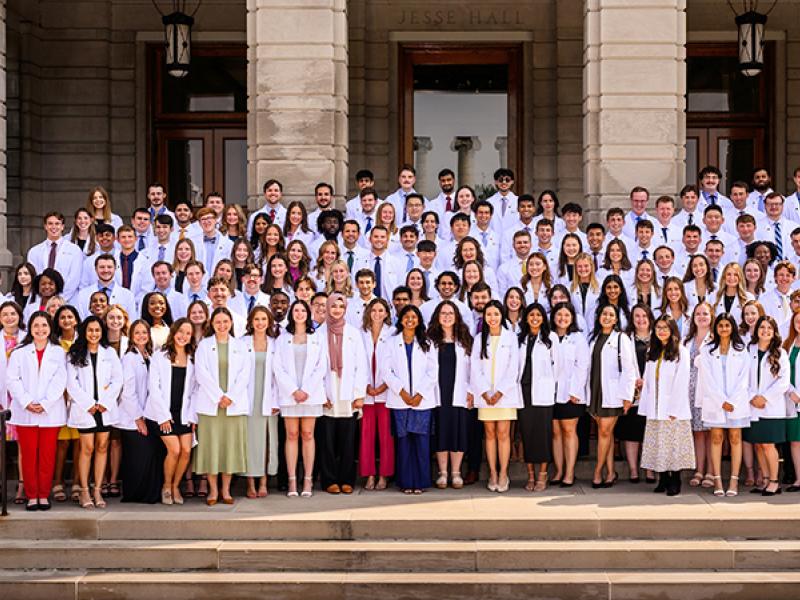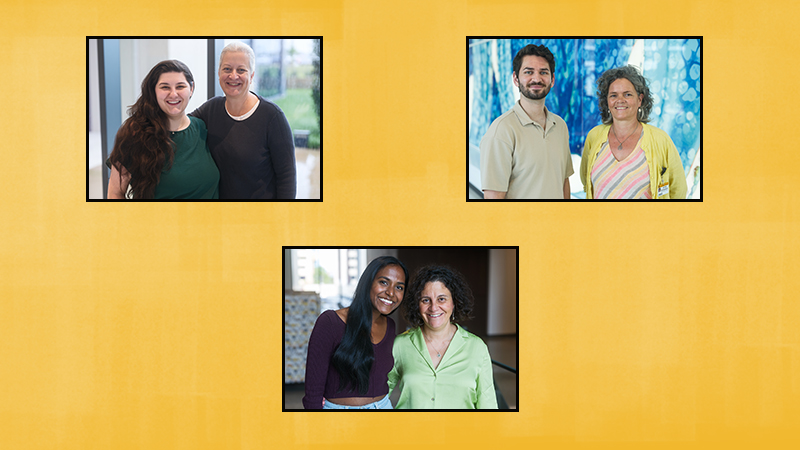
Each year, the MU School of Medicine Summer Research Fellowship Program supports original student research under the direct supervision of a faculty member. Students who have completed their first year of medical school are eligible to apply for the program. This summer, 75 medical students participated in the program with guidance from their School of Medicine faculty member.
Students receive stipends while working for 8-10 weeks on-site at the medical school on projects proposed by faculty members. Support is provided for each summer research fellow and each individual is required to conduct 20 hours of research per week, with weekly mentor meetings, complete IRB training and EHS training, and attend four workshops.
Each fellow is then required to submit a structured abstract for their summer research poster that will be presented at the annual Health Sciences Research Day on Nov. 15.
“The Summer Research Fellowship provides first-year medical students with a research experience that will aid them throughout their medical studies,” said Gillian Bartlett-Esquilant, PhD, associate dean for graduate research education. "While this is a long-standing program, this year with the creation of the mentor database and restructuring, we had a record number of participants. Thanks to the active feedback of the students, we expect to improve the program and encourage research interest every year going forward. This is only possible through the strong support and research-centric vision of the School of Medicine.”
Rising M2s Taylor Bosworth, Burhan Mubeen and Divya Pothuri are three of the fellows participating in this year’s program. Learn more about their summer projects and their experience throughout the process:
Student: Taylor Bosworth // Mentor: Gillian Bartlett-Esquilant, PhD
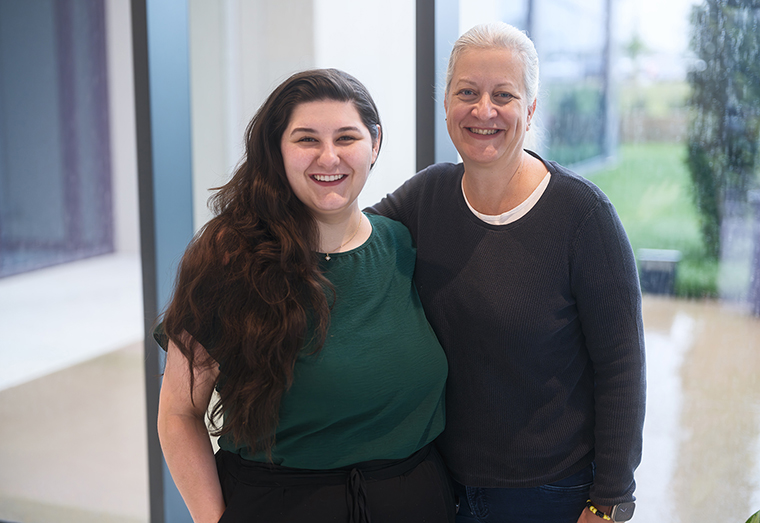
This project will create a smart device application, MentorMatch, to help streamline the process of connecting undergraduate, graduate and medical students with research opportunities available at the University of Missouri-Columbia campus. This new app will simplify the research opportunity identification process for students by presenting primary investigators who are actively recruiting and identifying the types of students or trainees they seek (Ex: master’s degree students, PhD students, residents, etc.). By offering a campus-wide app, it will encourage students to explore opportunities beyond their immediate disciplines, fostering interdisciplinary collaboration among scholars.
“Engaging with research early on in medical school has been a rewarding opportunity,” said Bosworth. “Research takes time to cultivate, and the Summer Research Fellowship Program opens the door to long-term mentorship and research opportunities. As a researcher, learning to be self-sufficient is essential. My mentor (Dr. Bartlett-Esquilant) has facilitated this growth while always being available for guidance when needed.”
Student: Burhan Mubeen // Mentor: Bettina Mittendorfer, PhD
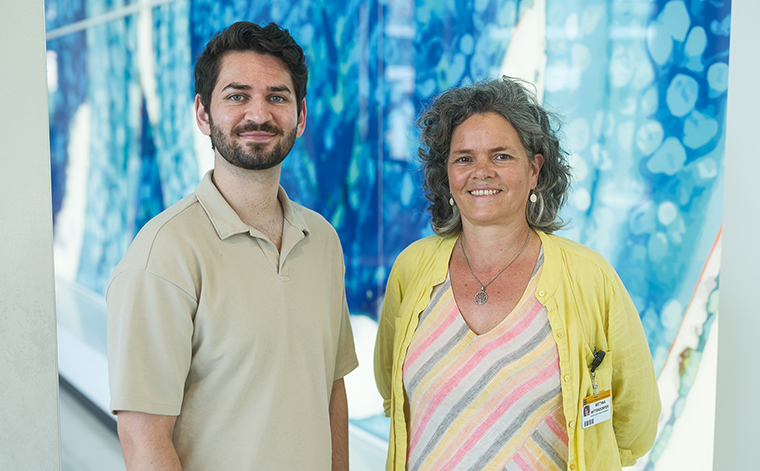
This project examined the relationship between dietary protein intake and the development of atherosclerosis, or the building of plaques on one’s arteries. Clinical participants consumed a meal with different types of protein, including animal-based protein and plant-based protein, and were then observed for markers of endothelial dysfunction, meaning indications that the cells lining the arteries are not working properly. The results of the project will be vital with the growing emphasis in contemporary Western society of increased protein intake.
“I have loved being able to see and take part in the research process that we as students and clinicians so often take for granted,” said Mubeen. “This experience has inspired me to consider a future career as a clinician scientist. I want to express my gratitude to my mentor, Dr. Mittendorfer, for being so welcoming in the lab space and encouraging my curiosity. This program allows students like me the ability to explore MU’s amazing research facilities and faculty.”
Student: Divya Pothuri // Mentor: Emma Teixeiro-Pernas, PhD
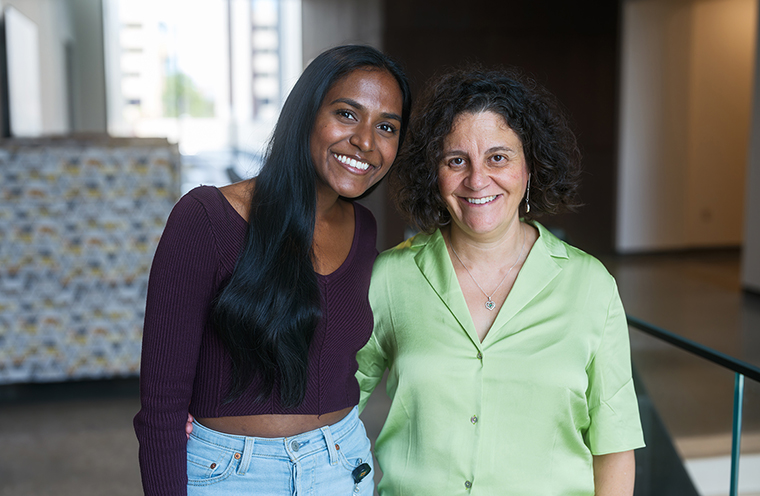
This project aimed to show that blocking a specific signaling pathway, called NFkB, could be a way to improve the lung’s long-term defense against infections. The lung’s immune defense relies heavily on memory T cells, which remember past infections and help the body respond faster if the same infection occurs again. There are two main types of these memory T cells: some circulate in the blood and other organs, while others stay in the lung tissue itself. This research has developed two new models to study how changing the levels of NFkB in these T cells affects their ability to form, stay active and protect the lungs from infections and cancer.
“This fellowship has profoundly enriched my overall medical education and future career plans, particularly by deepening my understanding of immunology,” said Pothuri. “While my medical school classes so far have provided a strong foundational knowledge, the hands-on experience in the lab has taken my learning to another level. One specific takeaway from my mentor, Dr. Teixeiro-Pernas, is to thoroughly review literature related to my experiments. This has helped me gain a deeper perspective on my work, enabling me to understand the broader context and refine my approach.”


